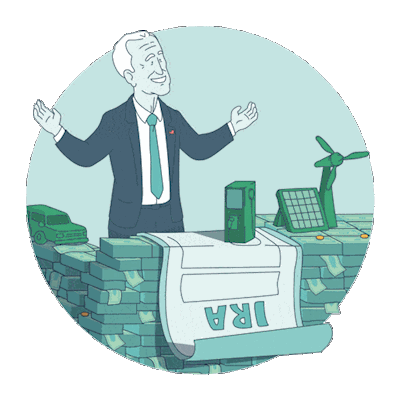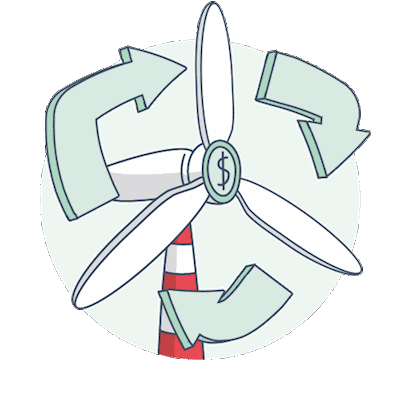You are using an outdated browser. Please upgrade your browser to improve your experience.
Article | 25 October 2022 | ESG

What does the Inflation Reduction Act do for green energy? What is the bill?
US President Joe Biden signed a $740 billion climate change, healthcare and tax bill into law. Heralding the Inflation Reduction Act (IRA) for its record investment in cutting carbon emissions. The act is the largest investment to fight climate change in US history. The bill includes nearly $370 billion to encourage a shift away from fossil fuels. The package would curb the country’s carbon emissions by roughly 40% by 2030, according to a summary of the deal. A key provision of the bill locks in tax credits for solar and wind energy for the next decade. In a move that should encourage new jobs and economic development within sectors tied to clean energy.
Fighting climate change has been one of President Joe Biden’s biggest foreign policy goals but because of the US’s lack of action, it was losing credibility on the international stage. During his first 100 days in office, he held a ‘Leaders Summit on Climate’ from the White House, where he committed to cutting the country’s annual emissions by at least 50% by 2030 compared with their all-time high and signed the US back into the Paris Agreement which his predecessor had pulled out of in 2017. The Inflation Reduction Act is expected to reshape the American energy industry by putting non-fossil fuel alternatives in reach of more people.
Not so much. The IRA promises to shake up US energy and foreign policy in dramatic ways. But the link to inflation is less clear. Biden has referred to lower prices in individual categories, rather than to lower inflation as a whole. And while the act will lower household costs across health coverage, prescription drugs, home energy, and electric vehicles, most economists agree that the bill is unlikely to reduce inflation in the short term. There are several measures, such as reducing the government's budget deficit, lowering drug prices, and making the US less vulnerable to energy price spikes, which could have an impact in the future.
China has long been perceived as the largest commercial beneficiary of the clean energy transition, thanks to its centrality in clean energy technology supply chains. When lawmakers drafted the climate and energy package, one of the main focuses was to freeze China out of the supply chain. The landmark climate legislation has important caveats limiting EV battery sourcing and production to the US or one of its free-trade-agreement partners, as it attempts to entirely reshore the battery industry to the US. Illustrating how climate and geopolitics are closely entangled.

Our view
The IRA should help the US come closer to meeting its climate targets and become a stronger climate leader, but global supply chains will likely continue to run through China for some time. This will require carefully managing the US-China trade relationship, including all the risks associated with it, even in the context of climate change. And while many environmental groups have had mixed reactions to the Inflation Reduction Act, we believe it is an encouraging step in the right direction on climate. The US still has far to go when it comes to eliminating its dependence on fossil fuels.